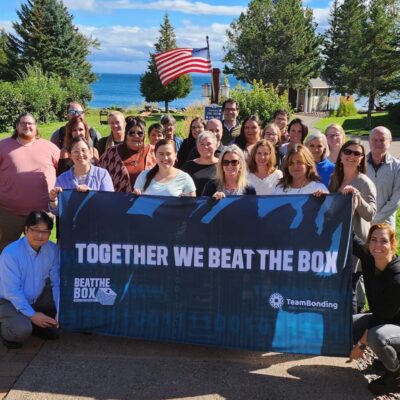Is your team running on autopilot during meetings? It’s easy for teams to fall into the pattern of monotonous and unproductive weekly meetings — but a simple set of planned question could change all of that.
Check in questions are an overlooked but important part of team meetings. They can help you build a cohesive team by ensuring everyone is on the same page, feels heard, and gets the support they need. Asking check in questions during your meetings can have a much bigger impact on your team than you might think, especially on group dynamics.
Read on to understand how they benefit meetings and uncover 40+ check in questions to get your team’s creative and collaborative juices flowing.
Understanding the Purpose of Check in Questions for Meetings
Check in questions are predetermined questions that you ask during or after a meeting to connect with team members and get feedback. These could range from questions about an upcoming project or task, or something more personal like work-life balance or future goals.
So that’s what check in questions are, but why are they important? Check in questions are important for numerous reasons. Most importantly, they can help serve as a foundation for developing relationships. They foster effective communication, which is an essential part of a strong team. Check ins can get conversations started, encourage people to open up, and build stronger relationships at work.
Outside of that, they can also be a way to create more understanding—whether that’s about a project, issues or concerns, personal struggles, or something else. Check ins can make sure that things don’t go unsaid. If someone is having an issue with a task or something at work, check ins are a great opportunity to voice that concern. With check ins, you can ensure that everyone is on the same page.
Before moving on, it’s also important to talk about goals. When you ask check in questions, you should have goals in mind. You need to identify goals for your check ins, and those goals will help guide you when you’re coming up with questions. Do you want to encourage communication? Get feedback about your procedures or a project? Put a focus on mental health? It’s key that you have goals for your check ins.
Benefits of Incorporating Check in Questions
Now that you know what check ins are and what they’re for, let’s move onto the benefits of incorporating good check in questions for meetings. There are tons of benefits of incorporating check in questions to your meetings, and understanding those benefits will help you see the importance of check ins.
One of the most obvious and important benefits is improved communication. Communication is an essential part of any successful team, and check ins can help you better that. By asking check ins, you’re going out of your way to start conversations with team members. And since these questions are often personal or serious, they can encourage open and honest communication.
And with better communication, you’re bound to foster collaboration as well. Collaboration is built on communication, so it makes sense that improving one would improve the other. If your team members are communicating openly and freely, they’ll have a much easier time working together with each other. Better collaboration means better results too, so that’s a big benefit.
Outside of work-specific benefits, there are also benefits around well-being, satisfaction, and mental health. First off, people want to feel cared about and important. Asking check ins makes employees feel like you care about their wellbeing. That alone can have a big impact on mental health and satisfaction with work.
Beyond that though, check ins can help you learn about what employees are dealing with—whether at home or at work. For example, maybe they are in the process of moving and that’s been stressful. Just knowing that can help you get a better understanding of that person and their life outside of work. But it can also help you learn more about their struggles and do your best to support them.
40 Check in Question Examples
Now, let’s look at some actual check in questions. We’ll break them down into different categories and then provide some examples. These categories aren’t all encompassing, but they’re a good framework to help you get started.
Icebreaker Style Check Ins
When it comes to fun check in questions for meetings, icebreaker style questions are a great choice. They are good for getting a conversation started, getting used to asking check ins, and learning more about your employees.
- What’s the best thing that happened to you this week?
- If you could have any superpower, what would it be and why?
- What’s your favorite hobby or pastime outside of work?
- Share one interesting fact about yourself that most people don’t know.
- If you could travel to any place in the world right now, where would you go?
- What’s the most memorable book or movie you’ve encountered recently?
- What’s one skill you’d like to learn or improve on this year?
- What’s your go-to comfort food or guilty pleasure snack?
- If you could invite any historical figure to dinner, who would it be and why?
- What’s one positive thing you’ve taken away from the past year?
Emotional Check Ins for Mental Health
Emotional check ins for mental health may not be fun, but they are very important. Burnout and other mental health struggles can have massive negative effects on your team. Asking questions like these can help you make sure your team is doing well mentally and get the support they need.
- Is there anything specific that’s been on your mind lately, either personally or professionally?
- How are you managing stress and workload? Do you need any support in this area?
- What strategies have you found helpful in maintaining a work-life balance?
- Are there any personal or work-related challenges you’d like to share with the team?
- How can we, as a team, support each other’s mental health and well-being?
- What resources or tools could assist you in managing your mental health better?
- Are there any signs of burnout or stress that you’ve noticed in yourself or others?
- How can we encourage open conversations about mental health in our team?
- What are some ways we can reduce the stigma around mental health in the workplace?
- Are there any boundaries you need to set to protect your mental well-being?
Project Related Check Ins
These questions are pretty self-explanatory. You need to know what’s going on at work, and these questions will help you understand what progress is being made, where there are struggles, and how you can help.
- What progress have you made since our last meeting?
- Are there any obstacles or challenges you’ve encountered that need to be addressed?
- Do you anticipate any delays or changes to the project timeline?
- How is the project tracking compared to the original plan or schedule?
- Have there been any updates to the project scope or requirements?
- Are there any resource constraints that could impact the project’s progress?
- Are the project’s deliverables on track and meeting the expected quality standards?
- Have you communicated with stakeholders or clients since the last meeting, and if so, what feedback have you received?
- Are there any risks or issues that need immediate attention?
- Have there been any changes to the budget or expenses that need to be discussed?
Personal Development Check Ins
Another good use for check in questions is for personal development. Learning more about how your team members are growing and their goals for the future can help you enable that growth, building a stronger team.
- What personal development goals have you been working on since our last meeting?
- Have you faced any challenges or obstacles in your personal growth journey? How did you overcome them?
- What new skills or knowledge have you acquired recently, and how do you plan to apply them in your work?
- Are there any areas where you feel you need additional support or training to achieve your personal development goals?
- Have you received any feedback or insights from colleagues or mentors that have contributed to your growth?
- How are you balancing personal development with your daily tasks and responsibilities?
- What steps are you taking to improve your time management and productivity?
- Are there any resources or workshops that you found particularly valuable in your growth journey?
- What progress have you made toward achieving your long-term personal development objectives?
- How do you handle setbacks or moments when you feel stuck in your personal development?
Tips for Crafting Effective Check in Questions
Before wrapping up, let’s go over a few tips for crafting effective check in questions. The first thing to keep in mind is your goal. What do you want the question to accomplish? Your questions should be tailored to your objectives.
You also want your questions to be well suited for that particular meeting. Good check in questions for virtual meetings may look different than ones for in-person meetings. Don’t forget to consider the context of where you’re meeting, what it’s about, who will be there, etc.
In general, your questions should be open ended and inclusive. You shouldn’t lead people into certain answers, and the questions should give employees space to voice their thoughts. Your questions also shouldn’t be too intrusive. People have boundaries and privacy, and you need to respect that.
Most importantly, you want to create a safe environment while encouraging people to be open and honest. If your employees don’t feel comfortable answering your questions, you won’t get the honest answers you need. So go out of your way to make sure people are safe, comfortable, and willing to be open.
Check In and Support Your Team with Team Bonding
Checking in with your team is incredibly important. Check in questions can help you align goals, support employee mental health, increase collaboration, and much more. Taking the time to check in with your employees can help you build a better, stronger team.
Start supporting your team with TeamBonding. We have 25+ years of experience in team building, and we have a number of events that are perfect for building stronger relationships with your team. So get in touch with us today and start building a better workplace.

















